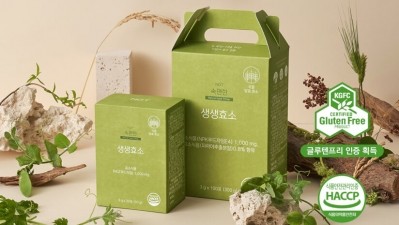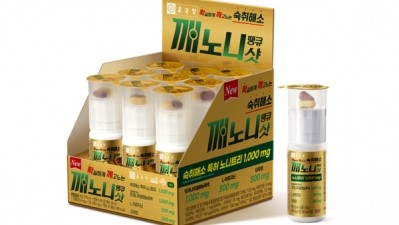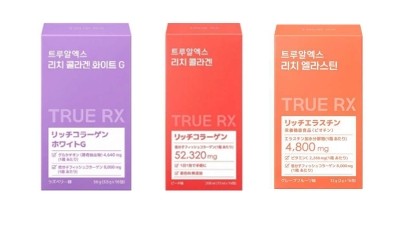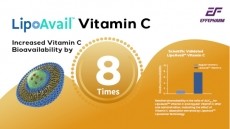Vitafoods Asia 2024
Propolis for the brain: Korean firm explores new uses amid trend for functional, natural foods

Propolis is produced by honeybees from substances collected from parts of plants, buds, and exudates.
It known for its anti-bacterial, anti-inflammatory, and immune health benefits.
With the rising interest in products that are both natural and functional, Seoul Propolis has been studying the other potential benefits of propolis.
Working with the Korean government and hospitals, the company is at the tail end of a three-year project that is researching the effects that propolis could have on cognitive ability.
“It's a new area that we are looking at. Propolis is usually used for immunity, anti-bacterial and anti-inflammatory effects,” Jay Lee, executive director, told NutraIngredients-Asia at Vitafoods Asia in Bangkok in September.
The research compares the stability and efficacy of different propolis extract on brain performance and comprises of in-vivo, in-vitro, and clinical study.
Over 300 active compounds could be found in propolis.
However, depending on the origin, environment, and extraction methods, different active compounds could be yielded.
“Some of these compounds are good for anti-inflammation, some are good for skincare, anti-oxidative effects, and there are some single compounds that are good for cognitive health.
“And we try to maximise that active compound by concentrating it,” said Lee.
The vast active compounds present in propolis also offer new product development opportunities, especially since consumers are interested in natural and functional foods.
“In the last decade, people are looking for natural products but nowadays, they are interested in natural and functional products, so propolis could be one of them.”
Asked the propolis-derived compound that the company is studying for cognitive health, Lee said he was unable to reveal due to confidentiality at this stage, but he said no similar research was available in open source yet.
The company is also working on applying a patent and publishing the research results next year.
Other research that the company has conducted include propolis' benefits for immune health, anti-bacterial effects in the oral cavity, and its protective effect against Helicobacter pylori or H. pylori-induced stomach ulcer.
It currently sells a range of finished propolis products under the brand PROBEE but also provides private label and propolis supply to other businesses in the nutraceutical, cosmetics, skincare, and animal feed industry.
Some of the brands using its propolis include oral health brand Dentiste by Siam Health and fellow Korean firms Kolmar, Cosmax, Dong-A Pharmaceutical etc.
Water-soluble propolis
Aside from researching the health benefits of propolis, the company also specialises in producing water soluble and alcohol-free propolis using a proprietary technology known as WEEP.
This involves a two-stage process, where propolis extraction is done first using ethanol and then water to make propolis water-soluble.
Making it water-soluble also widens its product applications and retain more health benefits, according to the company which spun off from the Korea Atomic Energy Research Institute (KAERI) about two decades ago.
Asia has a better understanding of propolis
Asian and European markets have a better understanding of propolis as compared to the US, said Lee.
This is based on the company’s experience in selling its raw materials to overseas markets. In Asia, it exports its raw materials to markets like Vietnam, Indonesia, Japan, Malaysia, and Thailand.
Lee notices that in the US, people tend to see honey and propolis as the same thing.
Whereas in Asia and Europe, there is good awareness as propolis is used in home remedies or as part of traditional herbal medicines.
This also means that it is easier for these markets to understand the beauty of water-soluble propolis that the company produces.
“Asian countries know propolis, thus, it is easier for them to appreciate the differences between ours and theirs.
“For example, most of them will use ethanol to extract propolis, and when they notice that ours is alcohol-free and water-soluble, they will understand that it’s different from what they are producing.
“Although Indonesia also produces water-soluble propolis, propylene glycol is used for propolis extraction, but this is not allowed under the South Korean regulations,” said Lee.



















